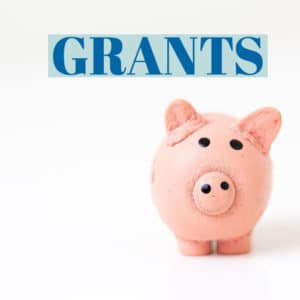 In the Chesapeake Crossroads Heritage Area, there are two grant opportunities, the MHAA Grant and the CCHA Mini-Grant.
In the Chesapeake Crossroads Heritage Area, there are two grant opportunities, the MHAA Grant and the CCHA Mini-Grant.
Writing the MHAA Grant
Every year, MHAA staff makes adjustments to the process and the application, so it is important to pay close attention to the grant materials when they are released in December of each year, and to attend one of the many workshops that MHAA staff provides (or watch a recorded workshop session). The CCHA Executive Director will give advice and technical assistance to applicants at every stage along the way, so applicants to the MHAA Grant opportunity be in contact with the Executive Director both prior to submitting the Intent to Apply and while writing the application, to discuss their project. The Executive Director is ready to read drafts and provide technical assistance at any stage of the application, as the MHAA grant has rules and requirements that are unique to the program.
Grant-seekers are asked, “Will the project sustain or support the regional identity, including any local priorities that have been identified by the local heritage area?” (please note: details of the application may be revised each year). Applicants should review CCHA’s Five-Year Plan (FY2024-2028) to learn more about the heritage area’s Goals and Objectives. Applicants should also review CCHA’s Interpretive Themes, which were developed for the Five-Year Plan. Citing these themes is one of the best ways to relate a project to the heritage area’s local priorities.
MHAA applicant guidance suggests that applicants directly align their project with one or more interpretive theme, goal, objective, strategy, priority and/or actions of the heritage area’s planning documents. However, more citations do not necessarily make a stronger answer. Applicants should articulate how the project supports the regional identity, if possible. In the case of a Capital project that is not interpretive, a general response about how the organization, as opposed to the project, will sustain regional identity is appropriate.
MHAA applications are designed for projects that have clear heritage tourism value, but not all new applicants understand what this means. Here is how MHAA refines the question:
- Does the applicant explain quantitative and/or qualitative ways in which the project will contribute to increased heritage tourism? For example, visitation, number of items produced, or how the product will be disseminated/used?
- Does the applicant talk about what audiences will be impacted? Will they be reaching a new audience or strengthening relationships with an existing one?
- How will audiences access the product? Online? Visiting a physical location?
The MHAA application asks, “Does this project address diverse or inclusive historical narratives?” MHAA guidance states: If the project does not specifically include a diverse or inclusive interpretive narrative, applicants can also comment more generally on if the project assists the organization with addressing any work it may be doing to promote diversity, equity, and inclusion. For capital projects, applicants can comment on if the capital project will result in a new space in which public programs or events will eventually be held that support diverse and inclusive audiences and narratives. Capital applicants may also comment on if efforts will be made to encourage Minority Business Enterprise (MBE) participation from vendors or contractors.
Writing the CCHA Mini-Grant
The CCHA Mini-Grant opportunity is only for Non-Capital projects, due to rules imposed by MHAA funding. Applicants to the CCHA Mini-Grant opportunity should contact the Executive Director to discuss their project at least 2 weeks before the due date, and plan to attend the MANDATORY workshop that is offered each year. Any applicant that does not attend the workshop must make arrangements for a one-on-one session with the Executive Director. This workshop is designed to answer questions about eligibility, rules and requirements that reflect MHAA funding, match requirements, what the review committee looks for, record keeping, and more. Note: this grant is reimbursable, which means that all funds must be expended and a Final Report completed before ANY funds are remitted.
The Mini-Grant application includes a question about the project’s consistency with our new Interpretive Framework. As with the MHAA application, citing these themes is one of the best ways to relate a project to the heritage area’s local priorities.
